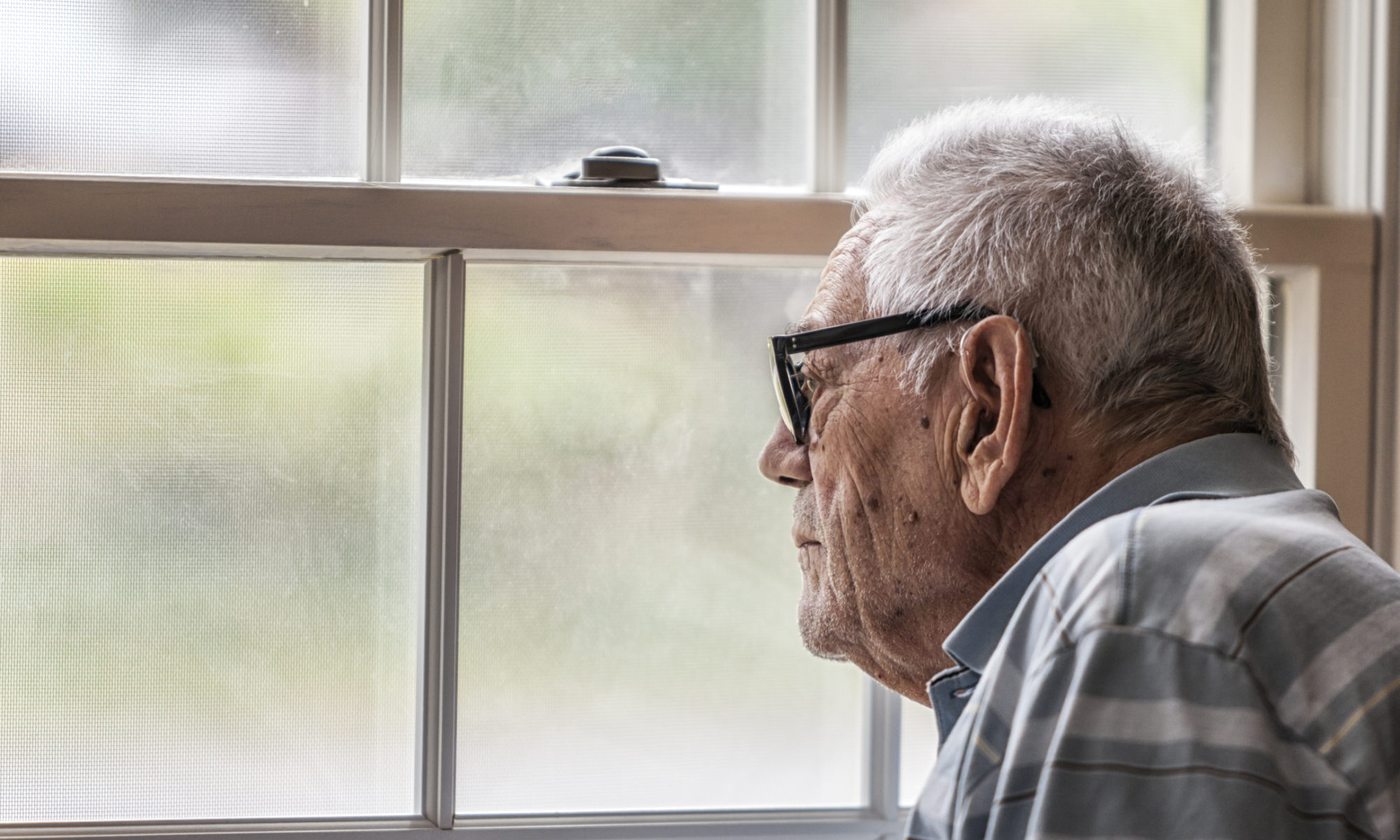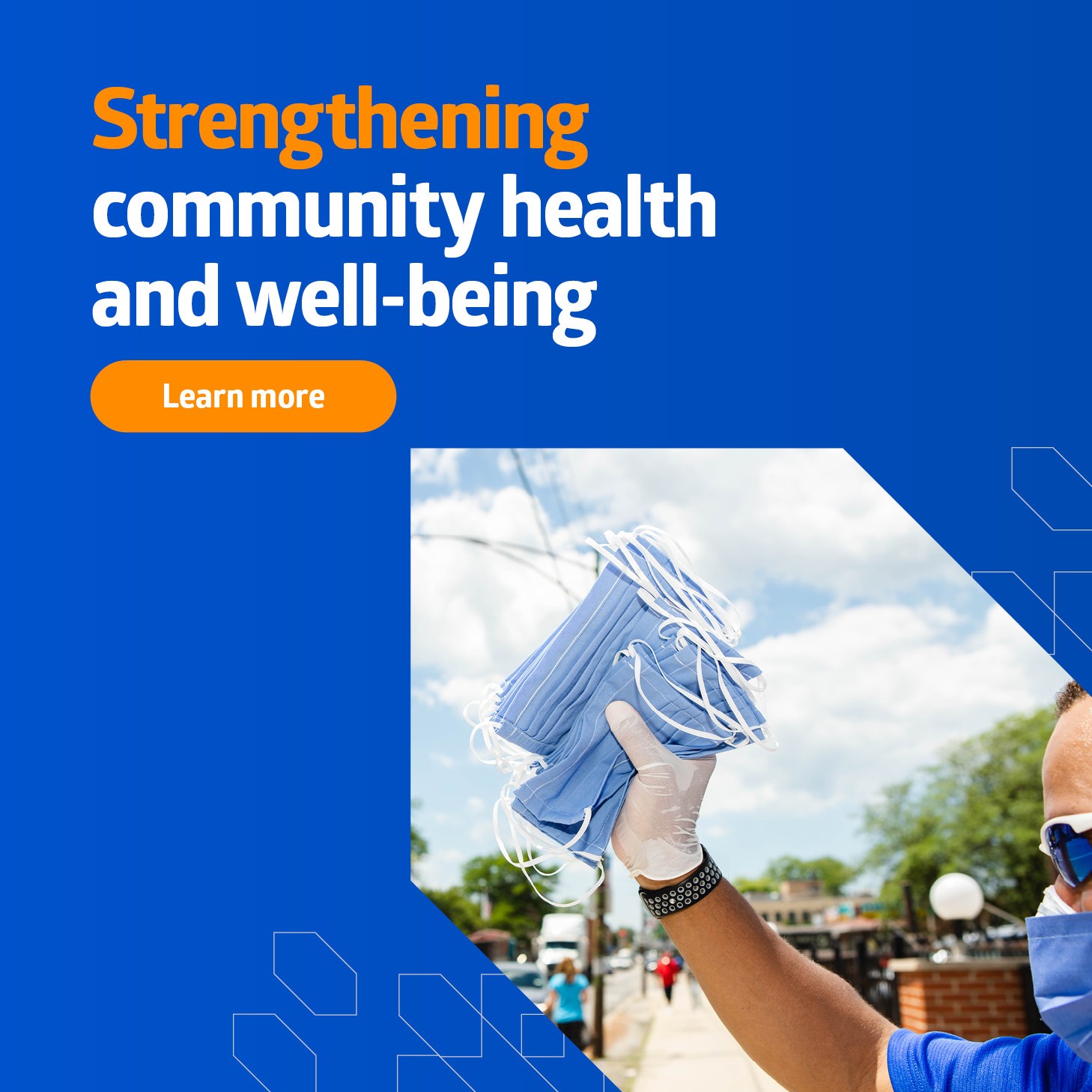How long-term care facilities can stop mental and physical decline during COVID-19

Residents face steep challenges as the pandemic stretches on
By Medline Newsroom Staff | December 3, 2020
This article is part one of a three-part Newsroom series exploring mental health and wellness during the pandemic.
Loneliness and isolation are the latest byproducts of the brutal COVID-19 pandemic. As stories emerge around the country about how a ‘slow killer’ is taking hold at long-term care facilities across the country, experts are exploring how mobility can play a role in improving care.
But it’s not so black and white.
Vigilantly fighting the spread of infection comes at a cost. Residents aren’t able to go about their facilities and attend social events as they please, and family visitations have been restricted or temporarily halted. This can often lead to many residents losing muscle mass and general mobility. Then there’s the risk of additional mental health issues that come when a resident can no longer physically accomplish the everyday tasks they are used to handling on their own.
Additionally, Accountable Care Organizations (ACOs), stakeholder and consumers can now see how individual institutions score when it comes to patient mobility, making it even more vital that LTCs have a mobility strategy in place.
Here are ways facilities can help prevent physical and mental health deterioration among their residents during heightened COVID-19 restrictions:
Embrace creativity to keep residents engaged
Develop and put fresh ideas in front of therapists and activity staff. Find ways to get residents mentally occupied even as they are largely confined to their rooms. Ideas can include fun activities like origami or playing wall-sized tic-tac-toe with post-it notes, any reasonable activity that keeps residents engaged mentally is worth trying. Technology can play a big role here, as iPads and other tablets provide a way for residents to socialize with friends and family remotely.
Find new ways to keep residents moving
In order to fight off loss of muscle and mobility, focus on novel ways to get residents moving around their rooms. This may involve shaking up the normal routine, whether that means creating a scavenger hunt or rearranging the furniture to make an obstacle course. Caregivers can leave single patient use therapy supplies like exercise bands in their rooms to give them additional ways to keep active. Another option might involve enlisting residents in the cleaning of their room, whether that means making the bed or washing the windows. Play a resident’s favorite type of music for dancing, shuffling or other simple movements. Do not be afraid to get silly, sometimes levity can help keep caregivers and residents engaged during these trying times.
Focus on innovative rehab solutions
Neurogym® is a forward-thinking rehab tool that puts the patient in the driver seat. Unlike most rehab equipment, the user, not the system, initiates movement, which can let the residents dictate the pace of an exercise. This builds confidence and helps speed recovery. Even for those who may not have stood or walked in years, and suffered the mental health consequences of their limitations, can see impressive gains. Neurogym is portable, only requires one therapist for assistance, which can help staffs that are stretched thin by the demands of the pandemic.
“Staff resources are challenged everywhere in this COVID pandemic,” says Linda Riccio, Vice President of Therapy Services at Transitional Care Management. “Isolation can decrease endurance causing an increase in falls, and Neurogym enables the staff to increase a resident’s endurance while providing the support they need during ambulation.”
As COVID-19 restrictions continue across the country, there is little doubt that innovative technology and creative problem solving will remain critical to long term care facilities working to keep their residents safe and healthy.
Learn more about how innovative rehab equipment can improve patient health outcomes.
Subscribe to our newsletter below to get the latest updates on our mental health series.
Medline Newsroom Staff
Medline Newsroom Staff
Medline's newsroom staff researches and reports on the latest news and trends in healthcare.
